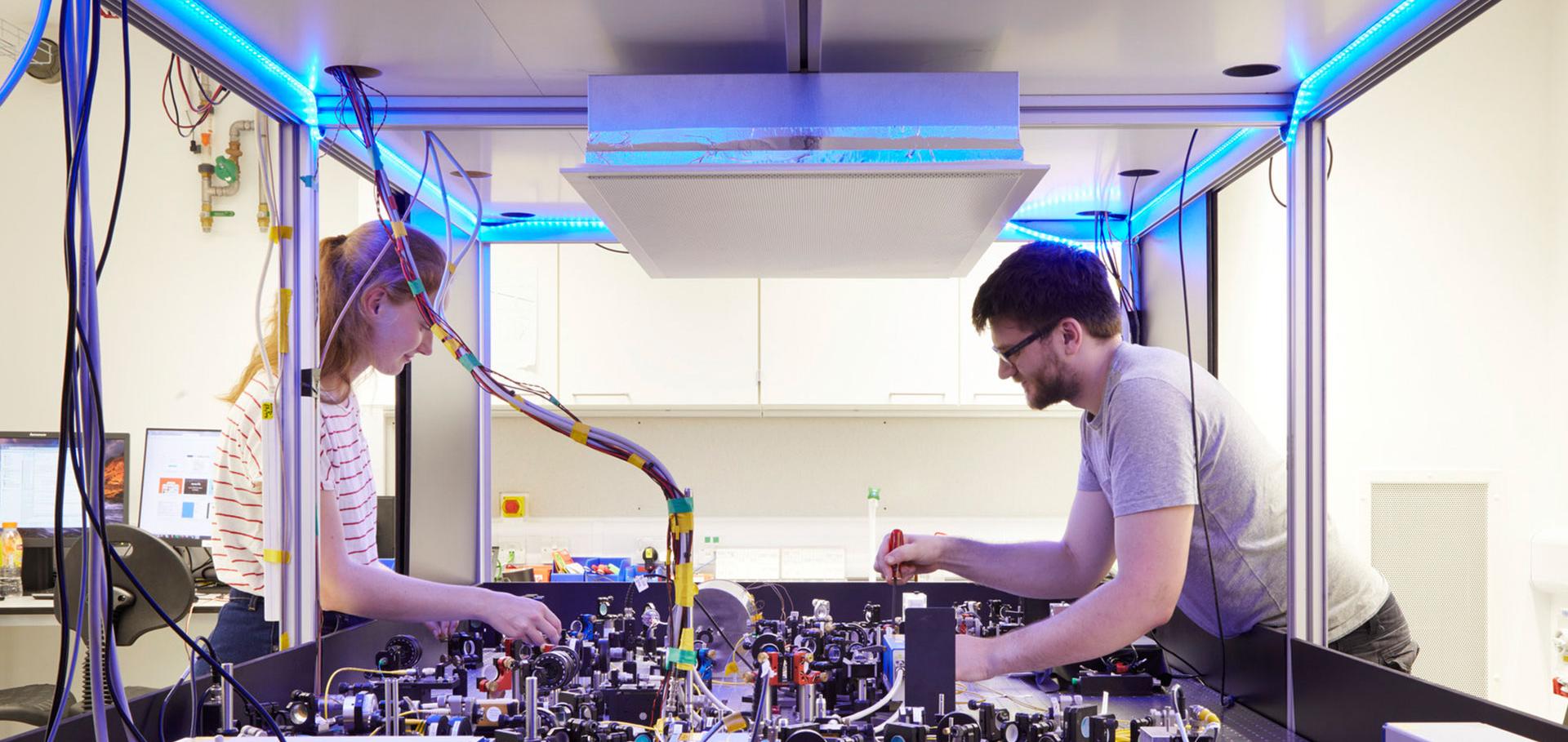Experimental study of proton emission from 60-fs, 200-mJ high-repetition-rate tabletop-laser pulses interacting with solid targets
Physical Review E Statistical Nonlinear and Soft Matter Physics 67:4 2 (2003) 464021-464025
Abstract:
Proton emission from 60-fs, 200-mJ high-repetition-rate tabletop-laser pulses interacting with solid targets was studied. A maximum proton energy of 1.5 MeV was measured for Mylar targets of thickness 20-40 μm. Results showed a maximum energy of 950 keV for 12μm for aluminum targets, and 850 keV for 12.5μm for copper targets.Experimental study of proton emission from 60-fs, 200-mJ high-repetition-rate tabletop-laser pulses interacting with solid targets
Physical Review E American Physical Society (APS) 67:4 (2003) 046402
Proton acceleration from high-intensity laser interactions with thin foil targets
Physical Review Letters 90:6 (2003)
Abstract:
Experiments were performed to distinguish between the origin of various structures present in the energetic proton signal at the rear of the target in high power laser-solid interactions. Three distinct proton populations that contribute to the signal observed on the detectors were identified.Proton Acceleration from High-Intensity Laser Interactions with Thin Foil Targets
Physical Review Letters American Physical Society (APS) 90:6 (2003) 064801
New and improved fast ignition
OE Magazine SPIE, the international society for optics and photonics (2003)


